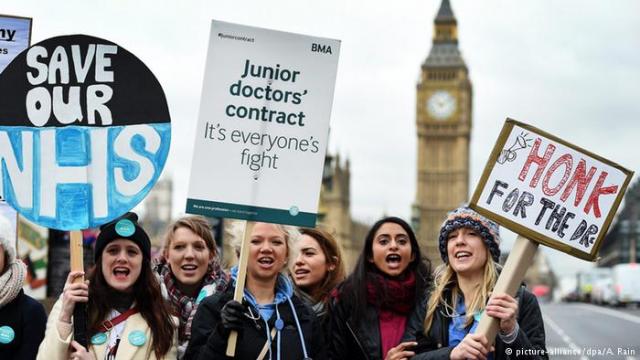
Defying an unprecedented wave of strikes by the U.K. medical establishment, the government announced last week that junior doctors working for the National Health Service will be forced to accept a new contract that increases their working hours, reduces their pay and removes safeguards designed to prevent them from being overworked.
Twenty-four hour strikes by junior doctors swept Britain on Feb. 10 and, before that, on Jan. 12, with medics providing only emergency care. But Health Secretary Jeremy Hunt rejected a final, “11th hour” alternative contract offer put forward by the British Medical Association, the trade union and professional association for doctors and medical students in the U.K.
Instead, Hunt insisted in parliament that the contract would be “both safer for patients and fair and reasonable for junior doctors.” Shortly after his announcement, he launched an inquiry into junior doctors' welfare and morale.
More than half the NHS heads whom Hunt claimed had supported the new contract have now publicly withdrawn their support following his move to impose it. Senior staff at Britain's 152 NHS trust hospitals – which, unlike the 17,000 plus standard NHS hospitals, are not under central government control – have said they may exercise their right to refuse to accept the contract.
Many existing trainee doctors are threatening to leave the country and some even have new jobs lined up already overseas. With applications to medical school in Britain falling over the past few years, the new contract could create a genuine medical talent drought. There are fears that the NHS will crumble under this strain, making way for private companies to come in and take over by offering more attractive contracts.
“Instead of working with the BMA to reach an agreement that is in the best interests of patients, junior doctors and the NHS as a whole, the government has walked away, rejecting a fair and affordable offer put forward by the BMA,” said Dr. Johann Malawana, junior doctor committee chair of the British Medical Association.
“If the government want more seven-day services then, quite simply, it needs more doctors, nurses and diagnostic staff, and the extra investment needed to deliver it… Our message to the government is clear: junior doctors cannot and will not accept a contract that is bad for the future of patient care, the profession and the NHS as a whole, and we will consider all options open to us.”
Polly Dickerson, an eye doctor from Yorkshire who joined in last Wednesday's strike, told Occupy.com that “imposing the contract is a kick in the teeth for junior doctors."
"The hours safeguards don't stack up. Patients and doctors will suffer, and worse, it feels like the dilution of terms and conditions is a deliberate ploy to make the NHS easier to sell off. I'm now considering alternative routes to completing my specialist training to become a consultant," she said, "and after that, looking at alternative careers. I can't work for a government that clearly despises me.”
What would she say to those people – especially the almost 3,000 people whose operations were cancelled due to the temporary work stoppage – who believe the strikes were “selfish”?
“I went on strike because there seems to be no other way to express how incredibly worried and demoralized we are by the content of the new junior doctor contract,” Dickerson responded. “I don't want to take a pay cut for working longer hours. No one would. But what worries me most is that my colleagues and I are already exhausted, working on understaffed rotations with more patients to see than ever.
"If we are stretched across more weekday and weekend hours with no more doctors, we will be too tired to give safe care. I won't walk out on a waiting patient, so if more colleagues are working weekends, there will be more people to see in the week and I will end up working longer. This is proven to lead to exhaustion, burnout and poorer care for the patients who need me.”
Dickerson believes the doctors' strike may be the beginning of the end for the NHS. “Seeing us in this state, bright young students are much less likely to see medicine as a good career,” she added. “We will end up with fewer good applicants, fewer doctors and worse care for patients unless we care for our staff.”
Speaking with Occupy.com, Paul Watson, an anesthetics registrar at Southmead Hospital in Bristol, explained, "Under the proposed contract, incoming junior doctors will receive a pay cut of around 25%. With student debts of up to £80,000, many of these incoming doctors will quit, or not ever take up posts as junior doctors. I’d predict about 20% of junior doctors actually leaving medicine. Such an exodus of junior doctors would be disastrous for the NHS.”
Watson was heartened, however, to see the overwhelming level of public support on the picket line. “The public seemed much more vocal in their support [than in January] – lots of smiling faces, thumbs-up and horn honking,” he said. “I think this time around the public are a bit more informed, there’s been more in the media, and also the media are starting to unpick the Department of Heath’s spin to some extent. I think a lot of the public are starting to see through the misinformation the government has been peddling.”
Nonetheless, some of the mainstream media coverage of the strikes surprised him. “It’s been an eye-opener, to be honest,” he admitted. “Most startling has been the BBC. I previously thought of the BBC as being very impartial. But [in the lead-up to the strikes] they were just printing verbatim information given out by the Department of Health, and taking it as fact.”
How powerful a part does he believe the contract will play in the future of the NHS? “I passionately feel the contract will lead to the rapid demise of the NHS as we know it,” he responded. “At that point the gateway opens for more and more private hospitals to come in and 'help out.' In my mind that would be a disaster for the general public, as it would mean poorer services for the sickest, most vulnerable members of society from an ever underfunded and under-supported NHS.
"It would be a tragedy if our Health Service that is revered worldwide could be sabotaged for the financial gain of a few well-connected people,” he added.
Dominic Pimenta is a junior doctor who also runs the widely read Juniordoctorblog.com, where he writes about his experiences in the context of the current conflict. “Jeremy Hunt announced imposition today and without a shred of irony accompanied it with... the announcement of a new commission into improving morale amongst junior doctors,” Pimenta says. “This health secretary, that so recently rejected an offer from the BMA despite protestations they have not negotiated, continues to try to 'win' this political contest at the expense of the very real patients and very real doctors that are being so damaged by it.
“To be honest it is the lies and spin that have dominated this conversation – it's what's driving the anger more than anything else,” Pimenta continues. “An offer was on the table this week that would've kept most doctors satisfied and patients safe but it was rejected for political reasons by Jeremy Hunt. [NHS chief executive] Danny Mortimer came out and said this wasn't true – but the BMA published the offer on their website.”
His general prognosis? “I fear Hunt's contract may mark the beginning of the end of a sustainable, viable national health service.”
3 WAYS TO SHOW YOUR SUPPORT
- Log in to post comments

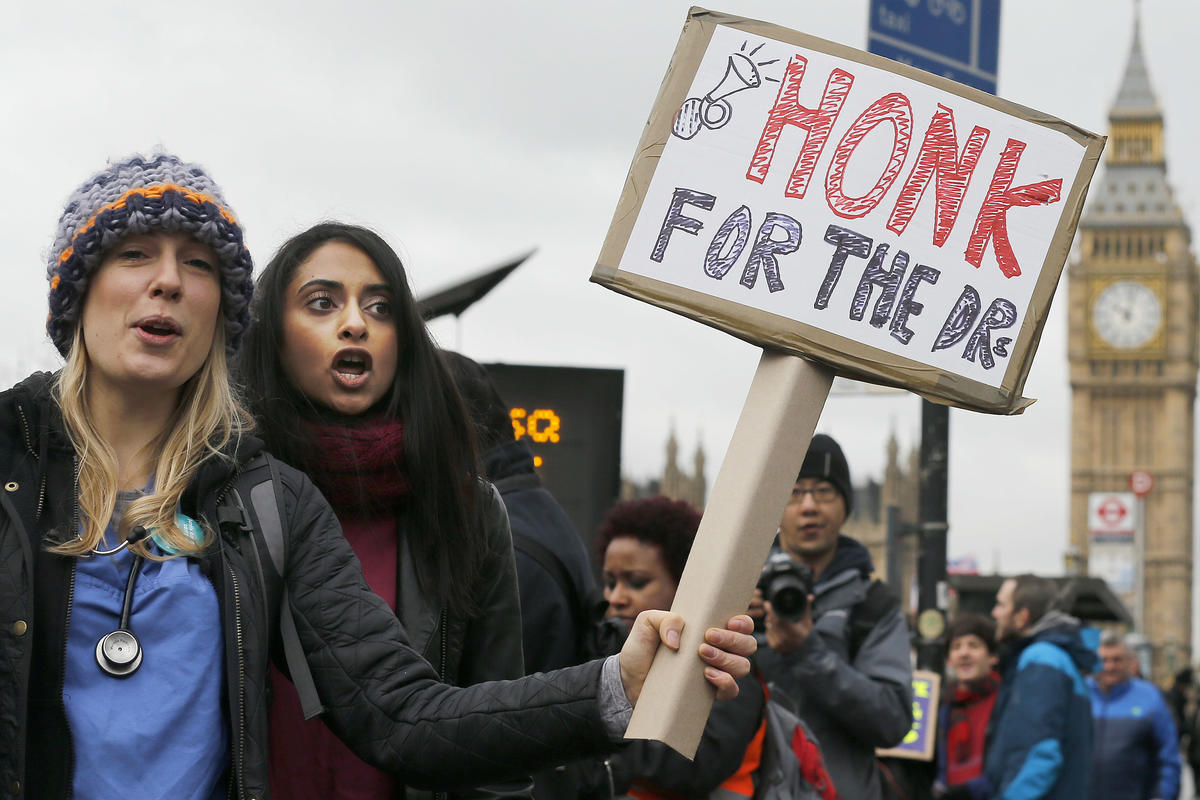

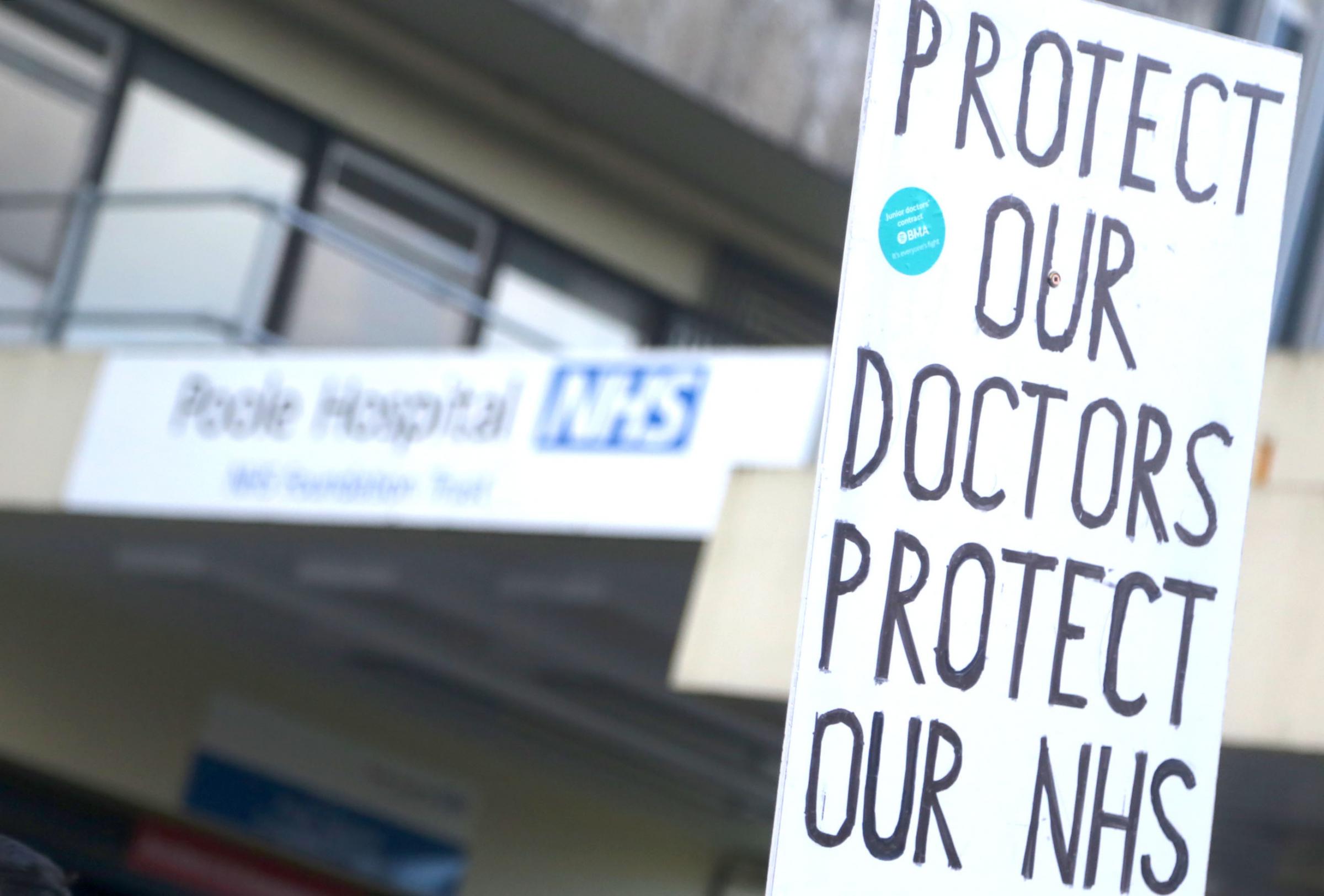
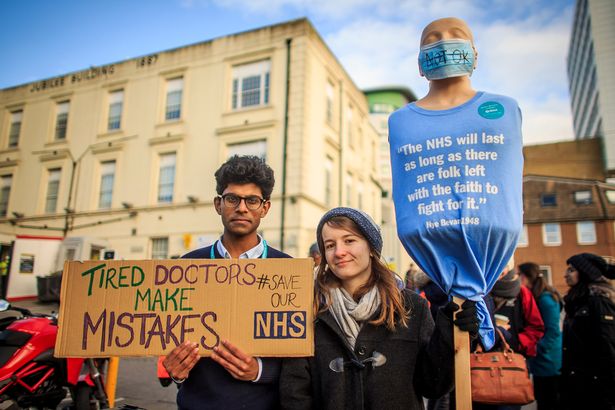

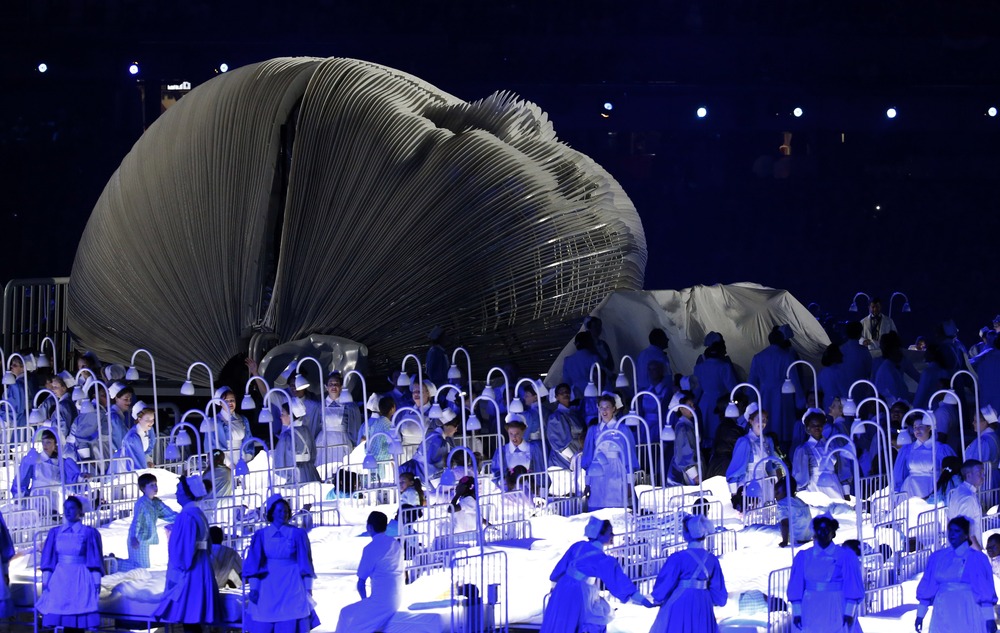













Comments
Ron McComb replied on
UK medical
We will only have adequate medical care when the money spent on supporting the international military industrial Banking propaganda complex is spent on healthcare.